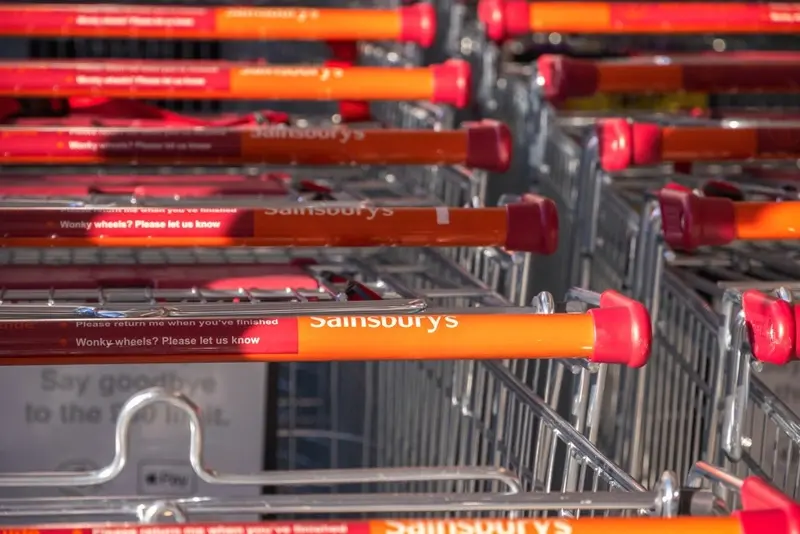
Shares in Sainsbury’s (SBRY) leapt 11.5% to 330p, their highest level in three years, as buyout talk re-emerged over the weekend.
According to one source, US private equity group Apollo Global Management is ‘running the rule’ over Sainsbury with a view to making an offer for the UK’s second-largest supermarket chain by sales.
As we flagged last month in the wake of the Morrison’s (MRW) takeover battle, Sainsbury is trading at a significant discount to its peers on the basis of enterprise value to EBITDA, a key metric for private equity buyers, making it an attractive target.
MONEY TO BURN
Private equity firms are flush with cash and Apollo has been chasing UK supermarket assets for some time. It was outbid for Asda, the third-largest grocery chain, by the Issa brothers who bought the company from owner Walmart for £6.8 billion last year.
It is also in talks to join the Fortress-led consortium bidding for Morrison’s, although the grocer’s board has already recommended a bid from rival private equity firm Clayton, Dubilier & Rice.
HOLDING ITS OWN
Sainsbury’s maintained its silver medal position in the grocery market throughout the pandemic and currently has a 15.2% market share compared with 14.9% a year ago, whereas Asda, Co-op and Morrison have all ceded market share.
However, supermarket sales growth has slowed sharply from last year due a combination of factors. While store visits have increased thanks to a relaxation of restrictions on shopping, the reopening of hospitality venues means people are eating out more, therefore they are buying less food to cook at home.
Meanwhile, food prices have been falling for the last few months thanks to the increased use of multi-buys and discounts, even though shelves are looking increasingly bare due to supply problems.
Also, growth in online shopping has stalled with industry experts Kantar Worldpanel recording fewer people buying groceries online and an average 8% reduction in digital basket sizes. As a result, online grocery sales actually fell by 2.6% in the 12 weeks to 12 July compared with the same period a year ago, the first time growth has turned negative.
SHORT SQUEEZE
Shares may also have been lifted by short covering as Sainsbury is the fifth most heavily shorted stock in the market, with 5.9% of its capital on loan according to shorttracker.co.uk. The biggest short positions are held by BlackRock (2.18%) and Pelham (1.59%), according to the website.
Short selling involves borrowing shares in a company and selling them in the hope that the price falls, at which point the seller can buy back at a profit minus the cost of borrowing.
By 9.30am almost seven million shares had been traded, more than the normal total daily volume in the stock.
READ MORE ABOUT SAINSBURY’S HERE




